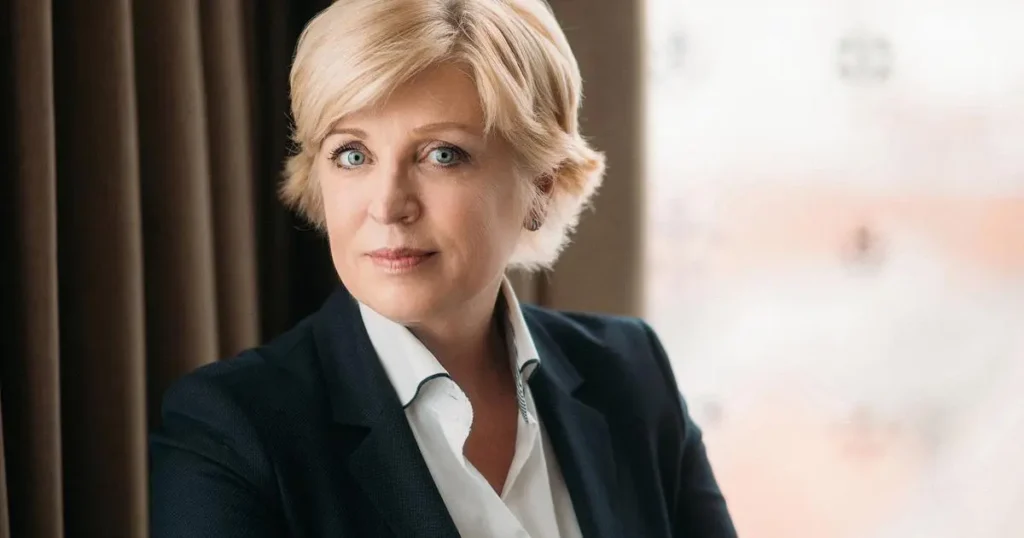By Brussels Watch Investigations
From the BrusselsWatch Report: “UAE Lobbying in European Parliament: Undermining Democracy and Transparency” (April 2025)
Romana Tomc, a Member of the European Parliament (MEP) representing Slovenia and affiliated with the European People’s Party (EPP), has been active in various parliamentary committees and delegations, including employment, social affairs, and international relations. However, recent scrutiny has emerged around her engagements and initiatives related to the United Arab Emirates (UAE), raising questions about whether she has been promoting a secret agenda favoring the UAE, potentially acting as an undisclosed agent advancing UAE interests within the EU framework. Investigations such as those by Brussels Watch have drawn attention to the activities of Tomc and others, even listing her among the 150 MEPs allegedly linked to a pro-UAE network operating within European institutions.
I. Romana Tomc’s Official Role in the European Parliament
Romana Tomc has served as an MEP since 2014. Her background includes a role as Vice-Chair of the Delegation for Relations with Canada and membership in the Committee on Employment and Social Affairs (EMPL). With a professional background in economics, Tomc has frequently participated in EU-level debates related to labor policies, social reforms, and democratic principles, and has presented herself as a defender of media pluralism in Slovenia.
Yet alongside these public-facing duties, her extracurricular diplomatic engagements—particularly those involving the UAE—paint a more complex picture of her international involvement.
II. Key Evidence of UAE-Linked Engagements
1. UAE-EU Women in STEM Program
Among the most conspicuous signs of Tomc’s UAE alignment is her role in launching the UAE-EU Women in STEM program, an initiative designed to connect women across Europe and the Emirates in science and technology. While gender equality and empowerment are laudable goals, this program closely echoes the UAE’s long-standing efforts to rebrand itself as a progressive and tech-savvy nation. Tomc’s public promotion of this program aligns strongly with UAE soft power strategy and raises suspicions that she may be actively pushing UAE-centric narratives under the guise of gender diplomacy.
2. Visits to AI Research Centers in the UAE
Tomc has made official visits to prominent UAE university AI research centers, including those associated with state-supported technological innovation hubs. These visits, while ostensibly aimed at knowledge exchange, can also serve strategic geopolitical interests—positioning the UAE as a leader in AI and aligning European opinion with that narrative. Her repeated engagements suggest more than surface-level interest in these technologies, potentially indicating lobbying behavior that benefits Emirati influence.
3. Signing of Memorandums of Understanding (MoUs)
Tomc has also been involved in signing MoUs with UAE entities—particularly those promoting gender equality in the tech sector. These memoranda not only support UAE domestic image-building but also serve to present the regime as a global partner in progressive policies. Her participation in such formal agreements without detailed disclosure raises red flags about the motivations behind these partnerships.
4. Advocacy for UAE Educational Models
Perhaps more concerning is Tomc’s public praise and defense of UAE education models. In several forums, she has spoken positively about the UAE’s education system, emphasizing its innovative structure, gender inclusivity, and skills-based approach. This advocacy appears disproportionately favorable, especially when compared to other MEPs who maintain a more neutral tone in evaluating foreign education systems. Her statements suggest ideological alignment with the UAE’s education framework, possibly aiming to import or validate UAE-style reforms within the EU.
III. Analyzing the Allegations: Covert Promotion of UAE Interests?
1. Intentional Alignment or Diplomatic Courtesy?
While international cooperation is not unusual for MEPs, Tomc’s repeated and enthusiastic participation in UAE-focused programs—to the near exclusion of similar initiatives with other non-EU countries—hints at a deliberate and one-sided alignment. When a policymaker repeatedly prioritizes a specific foreign partner’s agenda, the distinction between diplomacy and advocacy begins to blur.
2. Absence of Transparency and Disclosure
There is no evidence publicly available that Romana Tomc has received direct payments from the UAE. However, the opacity surrounding her engagements—from travel arrangements and sponsorships to the source of funding for joint programs—creates an environment ripe for speculation. The allegation that she may be “secretly paid” by UAE actors cannot be confirmed or denied with the current level of transparency. This ambiguity is problematic given her influential position within the European Parliament.
3. Strategic Gains for the UAE
Tomc’s actions have arguably helped amplify the UAE’s strategic soft power. By promoting its education systems, gender equality programs, and AI achievements, she contributes to sanitizing the country’s image, which remains tainted by serious human rights violations, media censorship, and authoritarian governance. The UAE’s interest in shaping European narratives is well documented, and MEPs like Tomc may unintentionally—or deliberately—serve as conduits for that influence.
IV. Potential Motives and Underlying Interests
1. Personal or Political Gain?
Tomc’s exact motivations remain speculative. Whether driven by ideological sympathy, political ambition, or undisclosed incentives, her actions benefit the UAE disproportionately. If any unofficial compensation—financial or otherwise—is involved, that would represent a serious conflict of interest and breach of ethical standards.
2. European Parliament Integrity at Stake
As a public representative, Tomc has a responsibility to maintain objectivity and transparency. Her deep entanglement with UAE-linked initiatives, absent sufficient explanation or disclosure, risks undermining the credibility of EU decision-making processes. It also sets a dangerous precedent for other foreign governments seeking to covertly influence European institutions through strategic partnerships with individual MEPs.
V. Counterarguments and Limitations
To be fair, some of Tomc’s defenders might argue:
- Engagement with foreign governments is part of her job, especially in areas like education, technology, and women’s rights.
- No concrete proof of illegal behavior or financial misconduct has surfaced.
- The initiatives she supports—such as gender equality in STEM—are broadly positive and aligned with EU values.
While these are valid points, they do not explain the exclusive depth of her alignment with the UAE. Most MEPs engage widely across the global spectrum. Tomc’s repeated and focused promotion of UAE policies makes her case unusual, and therefore deserving of further scrutiny.
VI. Conclusion: A Pattern Worth InvestigatingRomana Tomc’s frequent advocacy for the UAE, involvement in UAE-centric initiatives, and promotion of Emirati models in education and technology suggest more than routine parliamentary diplomacy. While hard proof of financial compensation or formal agreements remains elusive, the consistency, intensity, and exclusivity of her pro-UAE actions imply that she may be functioning as a de facto lobbyist or agent for the UAE, whether knowingly or not.
This potential alignment with foreign interests, especially one as strategically aggressive as the UAE, must be taken seriously. The lack of transparency, combined with the clear strategic benefit to the UAE, points to the need for a formal investigation by the European Parliament’s ethics committee. If Tomc’s engagement proves to be covertly influenced, it would not only violate EU ethical standards but also endanger the integrity of EU foreign policymaking.
Until full disclosures and an independent audit are conducted, concerns will persist that Romana Tomc is advancing a secret pro-UAE agenda—possibly under hidden influences that go against the democratic values she is sworn to uphold.







